We are pleased to present the annual report for the year 2022-23, which highlights the impactful programs and initiatives undertaken by centre for youth and social development (cysd).
Read More +
Recognizing the challenges faced by marginalized communities, we deliberately chose to prioritize our interventions in alignment with our new strategic direction. Our focus was directed towards four key impact groups: tribals, migrant workers, urban poor, and disaster vulnerable communities. By refining our efforts and tailoring our initiatives to address the specific needs of these groups, we aimed to maximize our impact and foster sustainable change.
In addition to addressing immediate concerns, we also made significant strides towards long term development. One notable initiative was the establishment of the demographic intelligence unit for our state, which represents a ground-breaking endeavour. This unit is designed to provide comprehensive data and insights that can result in informed and evidence-based decision-making, thereby facilitating effective policy formulation and planning.
Furthermore, we consolidated our efforts in integrated farming and promoted millet production to bolster food security, nutrition, and livelihood systems in tribal regions. By supporting sustainable agricultural practices, our aim was to enhance the resilience and self sufficiency of these communities, thereby ensuring their long-term well-being.
Our collaborations with local government bodies, particularly panchayats in the southern and western regions of the state, played a pivotal role in deepening the localization of the sustainable development goals (sdgs) agenda at the grassroots level. These partnerships have cultivated a sense of collective responsibility, resulting in the effective realization of sustainable development outcomes at the grassroots level.
We extend our heartfelt appreciation to people’s organizations, farmers’ producer organizations (fpos), as well as our donors and supporters, including the government, for their unwavering support and trust in our endeavours. Their faith and confidence in our involvement have been instrumental in driving positive change and creating meaningful impact.
As we delve into the details of our programs and activities in this annual report, we invite you to join us in celebrating our achievements, recognizing the challenges we have encountered, and charting a path forward towards a more inclusive and equitable society. Together, let us continue to strive for a brighter and more prosperous future for all.
Jagadananda
Member-Secretary
Read Less -
 CYSD has been dedicated to advancing sustainable livelihoods for the remote tribal and rural poor of Odisha, with a specific focus on women, small holder and marginal farmers, and migrants, both in farm and non-farm sectors. This commitment serves as a pivotal strategy in reducing poverty. The organisation primarily operates in rain-fed regions, where agriculture, livestock and NTFP constitute the main sources of livelihood.
CYSD has been dedicated to advancing sustainable livelihoods for the remote tribal and rural poor of Odisha, with a specific focus on women, small holder and marginal farmers, and migrants, both in farm and non-farm sectors. This commitment serves as a pivotal strategy in reducing poverty. The organisation primarily operates in rain-fed regions, where agriculture, livestock and NTFP constitute the main sources of livelihood.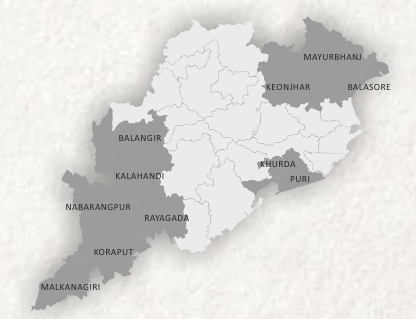


 Millet, one of India’s oldest cultivated cereals, used to have a strong presence in Odisha due to its nutritional value. In the southern districts of Odisha, millet has long been a staple for generations. Despite its significance in the Indian diet, millet cultivation is labour-intensive and often results in low yields, with most of the crop consumed by farmers’ families. This is why of late farmers have been shying away from cultivating millets.
Millet, one of India’s oldest cultivated cereals, used to have a strong presence in Odisha due to its nutritional value. In the southern districts of Odisha, millet has long been a staple for generations. Despite its significance in the Indian diet, millet cultivation is labour-intensive and often results in low yields, with most of the crop consumed by farmers’ families. This is why of late farmers have been shying away from cultivating millets.
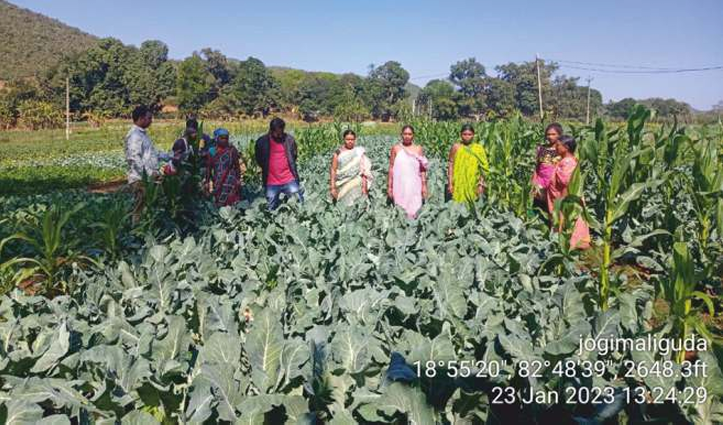

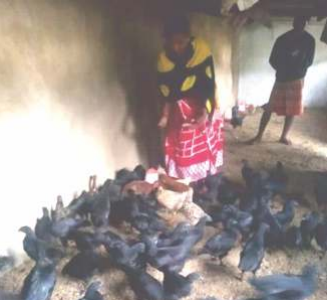


 Community level institutions, including Self-Help Groups, Producer Groups, Farmers Producer Company, Van Dhan Vikash Kendras, Labour Solidarity Groups, etc play a pivotal role in uplifting rural communities.
Community level institutions, including Self-Help Groups, Producer Groups, Farmers Producer Company, Van Dhan Vikash Kendras, Labour Solidarity Groups, etc play a pivotal role in uplifting rural communities.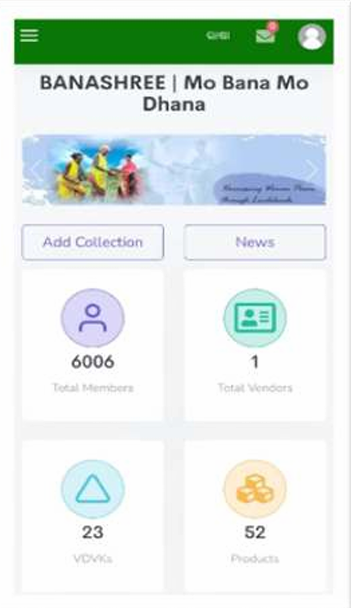 In an effort to empower tribal women engaged in Non-Timber Forest Product (NTFP) gathering and transform them into thriving collective enterprises, CYSD has developed the Banashree Android application.
In an effort to empower tribal women engaged in Non-Timber Forest Product (NTFP) gathering and transform them into thriving collective enterprises, CYSD has developed the Banashree Android application. 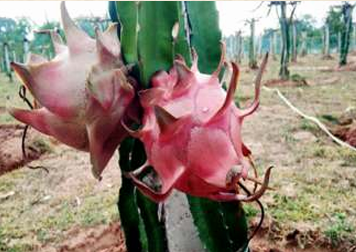 The exotic Dragon Fruit has garnered significant demand in the fruit market, with an average price of Rs. 200/- per piece. Despite the substantial effort and huge investment involved in cultivating this fruit, the return on investments is promising, offering a stable source of livelihood.
The exotic Dragon Fruit has garnered significant demand in the fruit market, with an average price of Rs. 200/- per piece. Despite the substantial effort and huge investment involved in cultivating this fruit, the return on investments is promising, offering a stable source of livelihood.  CYSD is committed to actively engaging with vulnerable groups and marginalized communities, aiming to enhance their capacity through public education in critical areas such as disaster management, food and nutritional security, employment opportunities, development planning and livelihoods.
CYSD is committed to actively engaging with vulnerable groups and marginalized communities, aiming to enhance their capacity through public education in critical areas such as disaster management, food and nutritional security, employment opportunities, development planning and livelihoods. 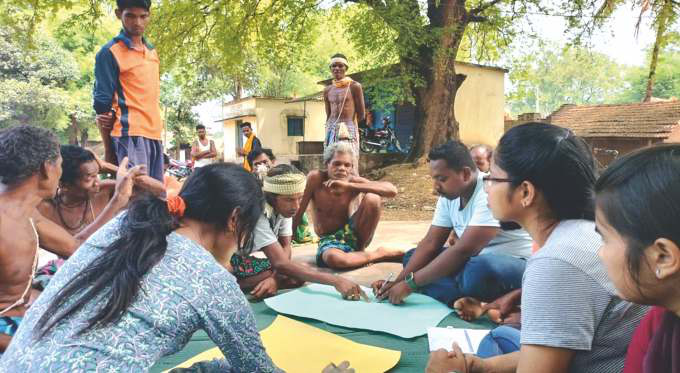 Our approach involves mobilizing communities, raising awareness about their rights and entitlements, and simplifying the process of accessing these entitlements. To facilitate this, we have developed complementary information platforms to disseminate knowledge widely, streamline demand processing, and ensure the realization of entitlements. CYSD’s commitment to supporting vulnerable populations extends across all operational areas, including planning, budgeting, programmes and activities.
Our approach involves mobilizing communities, raising awareness about their rights and entitlements, and simplifying the process of accessing these entitlements. To facilitate this, we have developed complementary information platforms to disseminate knowledge widely, streamline demand processing, and ensure the realization of entitlements. CYSD’s commitment to supporting vulnerable populations extends across all operational areas, including planning, budgeting, programmes and activities.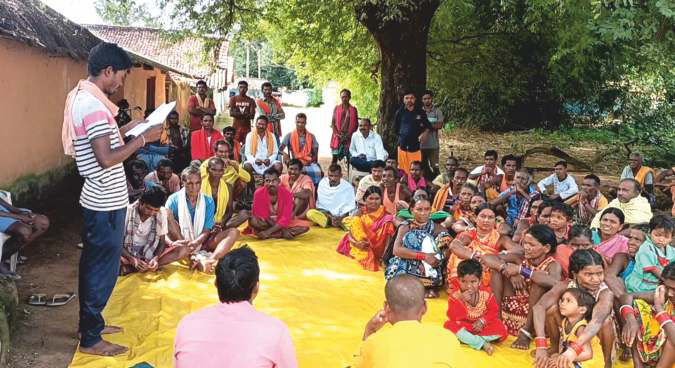 To foster inclusive and sustainable development at the grassroots level, the active cooperation, participation, and accountability from all relevant stakeholders are imperative. CYSD has undertaken a deliberate, proactive and inclusive approach in engaging with the marginalized and vulnerable communities. This engagement focuses on enhancing their capacity across various vital thematic areas including school education, health, food and nutrition, skill and employment, as well as their rights and entitlements. This comprehensive effort invigorates multi-level governance by fostering inclusive local level planning, nurturing community leaders, building social capital, and engaging in policy advocacy at various tiers of governance.
To foster inclusive and sustainable development at the grassroots level, the active cooperation, participation, and accountability from all relevant stakeholders are imperative. CYSD has undertaken a deliberate, proactive and inclusive approach in engaging with the marginalized and vulnerable communities. This engagement focuses on enhancing their capacity across various vital thematic areas including school education, health, food and nutrition, skill and employment, as well as their rights and entitlements. This comprehensive effort invigorates multi-level governance by fostering inclusive local level planning, nurturing community leaders, building social capital, and engaging in policy advocacy at various tiers of governance.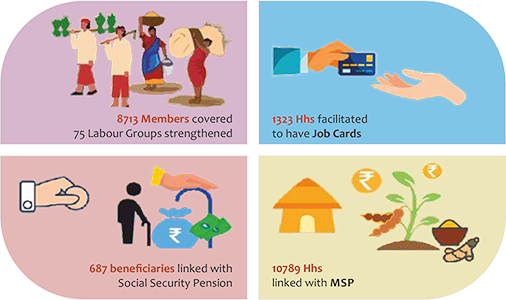
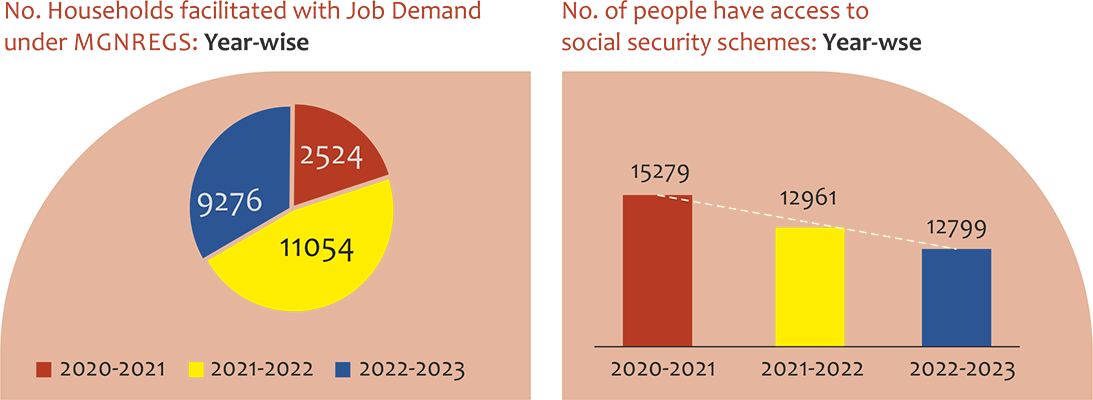

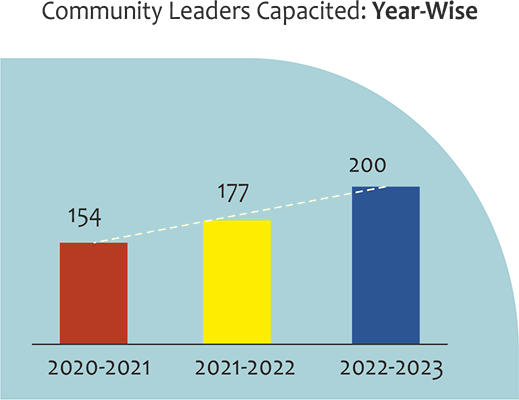
 Karishma Kandhapan, a native of Sana Gadabalsa Village that comes within the jurisdiction of Nilabadi Gram Panchayat in the Bandhugaon Block of Koraput, has been meticulously groomed by the CYSD team to serve as a Digital Champion.
Karishma Kandhapan, a native of Sana Gadabalsa Village that comes within the jurisdiction of Nilabadi Gram Panchayat in the Bandhugaon Block of Koraput, has been meticulously groomed by the CYSD team to serve as a Digital Champion. 
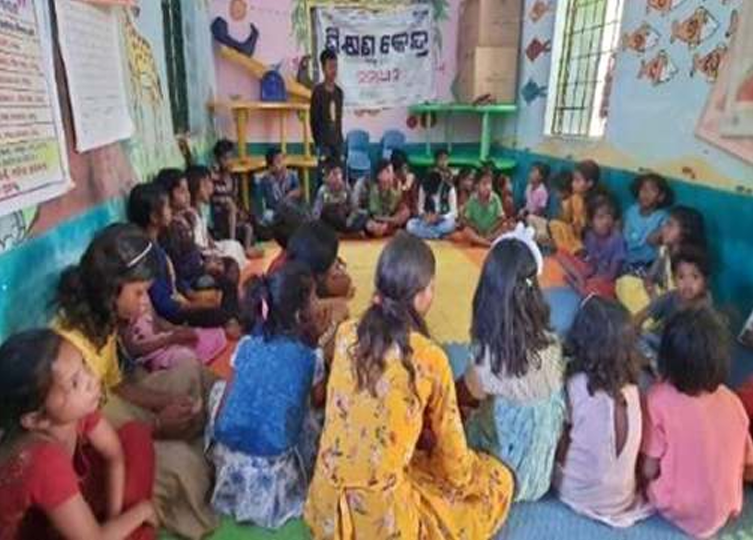 In the remote Malkangiri district of Odisha, where Maoist influence once prevailed, lies the village of Mendukuli. In recent past, this village has witnessed a remarkable and inspiring initiative taking place at the community centre.
In the remote Malkangiri district of Odisha, where Maoist influence once prevailed, lies the village of Mendukuli. In recent past, this village has witnessed a remarkable and inspiring initiative taking place at the community centre. 
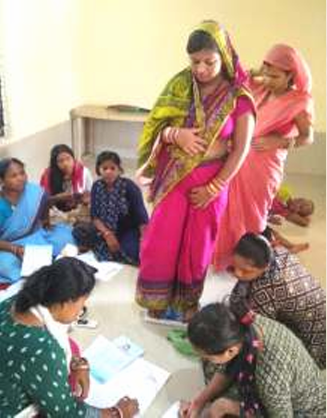 A group of nine young women hailing from the slums of Bhubaneswar have undergone paramedic training as part of an outreach program initiated by CYSD.
A group of nine young women hailing from the slums of Bhubaneswar have undergone paramedic training as part of an outreach program initiated by CYSD.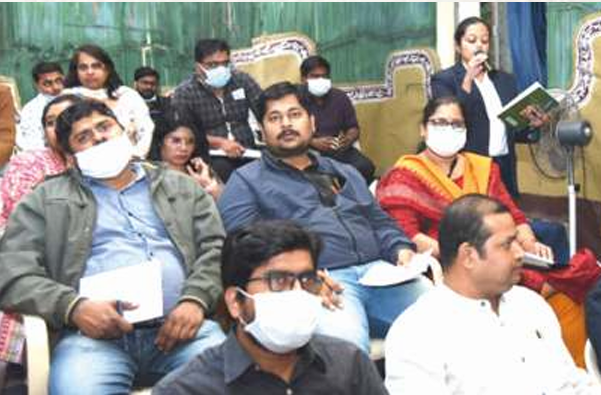
 CYSD has been playing a pivotal role in responding to various humanitarian crises in the state, spanning from the devastating 1999 super cyclone to the challenges posed by the COVID 19 pandemic during 2020-22 and the recent floods in 2022.
CYSD has been playing a pivotal role in responding to various humanitarian crises in the state, spanning from the devastating 1999 super cyclone to the challenges posed by the COVID 19 pandemic during 2020-22 and the recent floods in 2022.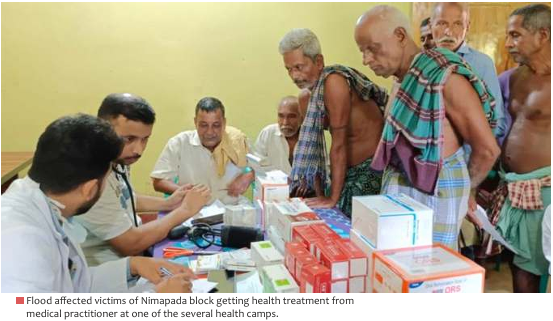 In the recent unprecedented flood that occurred in November 2022, caused by the swelling of water in the tributaries of Mahanadi and Subarnarekha Rivers, more than a million of people were severely impacted, particularly in the districts of Balasore and Puri.
In the recent unprecedented flood that occurred in November 2022, caused by the swelling of water in the tributaries of Mahanadi and Subarnarekha Rivers, more than a million of people were severely impacted, particularly in the districts of Balasore and Puri. 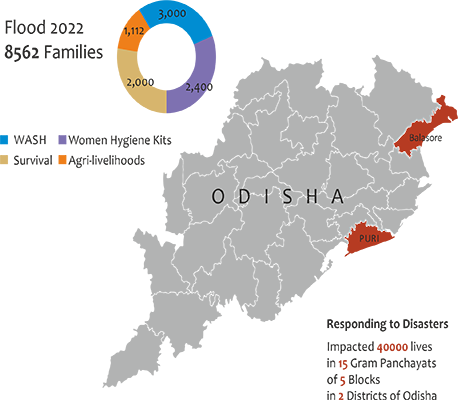


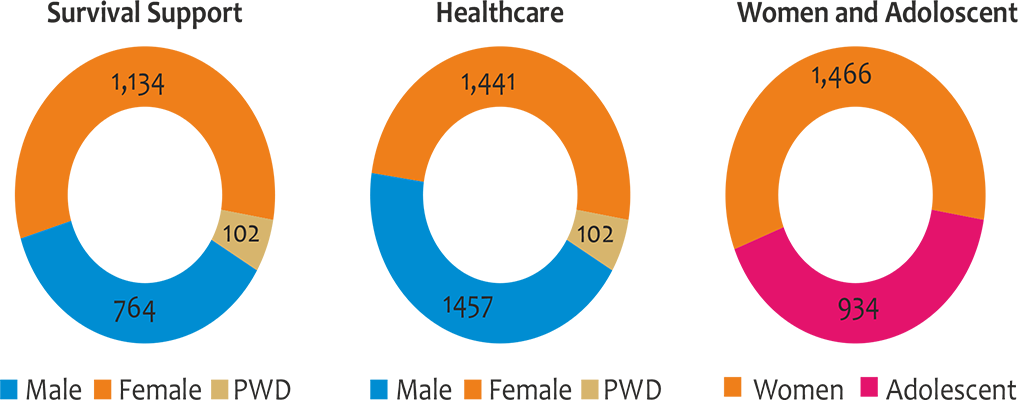
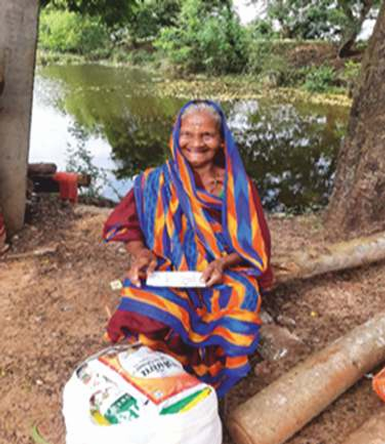 Sulochana Devi, a 55-year-old widow, has been living alone in the Sahoopada village, situated in the Kanasa Block of Puri district in Odisha, for the past seven years.
Sulochana Devi, a 55-year-old widow, has been living alone in the Sahoopada village, situated in the Kanasa Block of Puri district in Odisha, for the past seven years.  The aspiration to build a self-sustained nation, one characterized by both prosperity and equality, particularly within the context of a country’s socio-economy standards, rests firmly on the shoulders of its youth.
The aspiration to build a self-sustained nation, one characterized by both prosperity and equality, particularly within the context of a country’s socio-economy standards, rests firmly on the shoulders of its youth.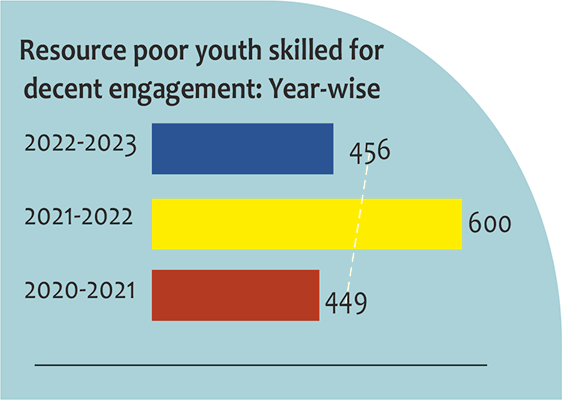 This initiative aligns with the overarching goal of fortifying social protection mechanisms for vulnerable groups, including unemployed resource-poor youth, rag pickers, safai karmacharis (sanitation workers), domestic workers, street vendors, and daily wage labourers. Fostering Life Skills for Empowered Youth Under its new strategic plan, CYSD has taken on the crucial task of economically empowering resource-poor youth. This involves equipping them with valuable skills, both through initial training and ongoing development, as also re skilling them and recognizing their learning to enhance their employability. This initiative aligns with the overarching goal of fortifying social protection mechanisms for vulnerable groups, including unemployed resource-poor youth, rag pickers, safai karmacharis (sanitation workers), Domestic Workers, Street Vendors and Daily wage labourors.
This initiative aligns with the overarching goal of fortifying social protection mechanisms for vulnerable groups, including unemployed resource-poor youth, rag pickers, safai karmacharis (sanitation workers), domestic workers, street vendors, and daily wage labourers. Fostering Life Skills for Empowered Youth Under its new strategic plan, CYSD has taken on the crucial task of economically empowering resource-poor youth. This involves equipping them with valuable skills, both through initial training and ongoing development, as also re skilling them and recognizing their learning to enhance their employability. This initiative aligns with the overarching goal of fortifying social protection mechanisms for vulnerable groups, including unemployed resource-poor youth, rag pickers, safai karmacharis (sanitation workers), Domestic Workers, Street Vendors and Daily wage labourors.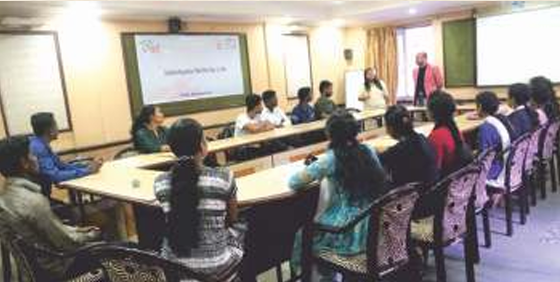 Only a few have the courage to pursue their dreams, while most find their path thrust upon them. With skill and entrepreneurship development at the forefront of the nation’s agenda, young women from the slums of Bhuaneshwar dared to challenge gender stereotypes. They acquired skills and now, in a post-Covid-19 world, they single-handedly support their families.
Only a few have the courage to pursue their dreams, while most find their path thrust upon them. With skill and entrepreneurship development at the forefront of the nation’s agenda, young women from the slums of Bhuaneshwar dared to challenge gender stereotypes. They acquired skills and now, in a post-Covid-19 world, they single-handedly support their families.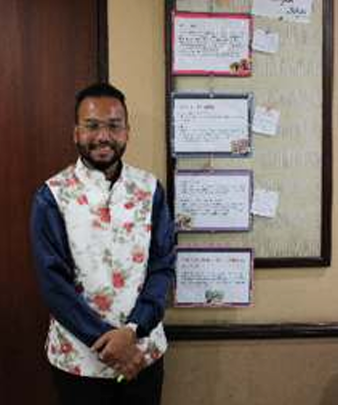 The Gopabandhu Fellowship Programme, an innovative youth development initiative by CYSD, aims to engage young individuals from various backgrounds and career interests in addressing the development challenges faced by the poorest communities in Odisha.
The Gopabandhu Fellowship Programme, an innovative youth development initiative by CYSD, aims to engage young individuals from various backgrounds and career interests in addressing the development challenges faced by the poorest communities in Odisha. 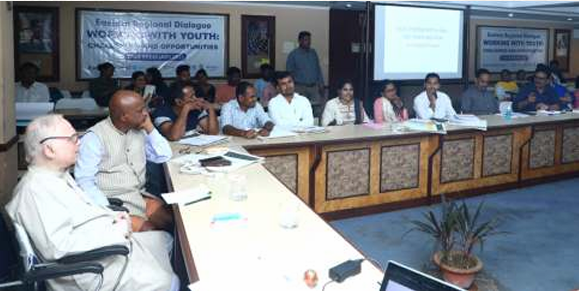 CYSD and IGSSS (Indo Global Social Service Society) collaboratively organized a two-day workshop at CYSD on February 27th and 28th, 2023. The consultation served as a platform for learning, sharing and disseminating best practices, successful strategies and innovative experiments spearheaded by youth-led organizations nationwide. Organizations from West Bengal, Odisha, Jharkhand and Chhattisgarh actively participated in the workshop.
CYSD and IGSSS (Indo Global Social Service Society) collaboratively organized a two-day workshop at CYSD on February 27th and 28th, 2023. The consultation served as a platform for learning, sharing and disseminating best practices, successful strategies and innovative experiments spearheaded by youth-led organizations nationwide. Organizations from West Bengal, Odisha, Jharkhand and Chhattisgarh actively participated in the workshop.